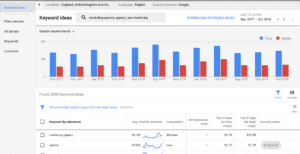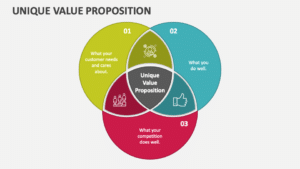I’m going to kick things off by talking about the cornerstone of any successful business strategy: Blog Niche Selection.
Before we get into details of how, let us first answer this question; what is a niche?
What is a niche?

Now, a niche is essentially a specialized slice of a broader market. In the context of blogging, a niche refers to a specific, focused topic or subject that a blogger chooses to write about consistently. Instead of covering a broad range of topics, bloggers often narrow down their focus to a particular area of interest or expertise.
Common examples of blog niches include travel, personal finance, health, pets, hiking, wellness, technology, fashion, food, and many more.
Why is a niche so important to bloggers?
Having a niche in blogging offers several advantages:
#1. Targeted Audience – A specific niche allows bloggers to target a particular audience interested in that specific topic. This in turn helps in attracting a more engaged and loyal readership.
#2. Expertise – Focusing on a niche allows bloggers to become experts in that particular subject matter. This expertise can build credibility and trust with the audience.
#3. SEO Benefits – A niche-focused blog can perform better in search engine rankings for specific keywords related to that niche. This can lead to increased visibility and organic traffic.
#4. Monetization Opportunities – Credibility and trust often attract advertisers and sponsors interested in reaching a specific audience; a potential revenue channel for the blogger. In addition, bloggers can explore various monetization strategies such as affiliate marketing, sponsored content or even selling products related to their niche.
#5. Passion and Consistency – Bloggers are more likely to stay motivated and consistent when writing about a topic they are passionate about. This enthusiasm can be conveyed to the audience, creating a more engaging and enjoyable reading experience.
In a nutshell, a niche facilitates bloggers to create content that is EEAT (Experience, Expertise, Authoritativeness, Trustworthiness) friendly; content that engages and ranks!
Niche, Passion, Demand, Competition and Success

A niche is like your own unique playground within the vast world of Internet where you’ll speak to specific needs, solve particular problems, or cater to a defined audience segment.
This isn’t just about cornering a small segment of the market; it’s also about setting the stage for sustainable business growth. Your chosen niche will dictate the trajectory of your marketing efforts, product development, and customer interaction. When you get it right, you’re looking at a loyal customer base, streamlined marketing, and potentially less competition.
You might be wondering, ‘How do I choose a niche that’s a golden ticket for my business ambitions?’ It’s about striking a balance. Choose something that resonates with you, yet has a proven demand. Leverage what you’re passionate about but don’t ignore the data that points to what people are willing to put their money behind.
Guide to Choose a Successful Niche
Now that you have nailed down the essence of picking a niche, lets now focus on turning your niche idea into a business opportunity that’s not just viable but thriving.
Here are my recommended journey to choosing a successful niche, particularly for bloggers:
#1. Analyzing Market Demand

I’m going to show you how to zero in on market demand and size up your competition. It’s crucial to understand that the best niches are those where customer interest and spending habits meet minimal resistance. So, let’s take a practical look at the tools and tactics that can shed light on what people are actually searching for and buying.
To begin with, keyword research tools like Google Keyword Planner or SEMrush can offer clear insights into search trends. These tools let you identify how often certain terms are searched and how these trends change over time.
It’s however not just about the numbers; diving into forums, social media conversations, and customer reviews can help you gauge the level of enthusiasm and pain points within a niche.
#2. Assess Competition

Another essential step is to evaluate the competition. This isn’t just about counting the number of competitors; it’s also about understanding the quality of their offerings and how well they’re meeting customer needs.
Look for a gap you can exploit. Maybe there’s a segment of the market that’s underserved, or perhaps you can deliver a product with a unique feature or superior quality.
Remember, I’m here to help you navigate the complexities of niche selection. You don’t have to be a market research guru to make an educated decision.
By combining quantitative data with real-world observations, you’ll get a well-rounded view of where the opportunities lie. And that’s going to include becoming a bit of a digital detective, scouting out the landscape and listening to the consumer buzz.
#3. Determining Your Strengths
You’re going to find out about the intersection of self-knowledge and market success right here. To pick a niche that not only has market potential but is also sustainable for you in the long run, knowing your own strengths and expertise is critical.

Start by conducting a SWOT analysis—identify your Strengths, Weaknesses, Opportunities, and Threats. This isn’t just about introspection; it’s a structured way to evaluate how your personal attributes can be applied to your business endeavors.
When it comes to strengths, choose something that resonates with you. Are you skilled at content creation, or do you have a deep understanding of a particular subject? Leverage these personal assets as they can be a solid foundation for your niche.
#4. Identify Your Expertise
Your expertise doesn’t necessarily need to be measured in degrees or certificates. Real-world experience, hobbies, or even things you’re enthusiastic about can develop into areas of expertise.
This also isn’t the time to be humble. Highlighting what sets you apart from others can direct you to a niche that you can not just compete in, but truly excel.
Expertise is crucial when choosing a niche for several reasons:

- In-depth Knowledge – Having expertise in a particular niche means you possess in-depth knowledge about the subject matter. This can help you create high-quality content, products, or services that are valuable to your audience.
- Credibility and Trust: Demonstrating expertise builds credibility and trust with your audience. When people see that you are knowledgeable in your niche, they are more likely to trust your recommendations and engage with your content. This is more so when you are creating YMYL (your money your life) content.
- Effective Communication: Expertise allows you to communicate effectively with your target audience. You can speak the language of your niche, addressing specific concerns, needs, and interests, which resonates with your audience.
- Identifying Opportunities: A deep understanding of your niche enables you to identify opportunities and gaps in the market. This can be valuable for creating unique and innovative offerings that resonates optimally with your audience.
- Competitive Advantage: Expertise provides a competitive advantage. In a crowded market, being an authority in your niche sets you apart from competitors and positions you as a go-to resource.
- Adaptability: With expertise, you can adapt to changes and trends within your niche more effectively. This adaptability ensures that your offerings remain relevant over time.
#5. What’s Your Unique Value Propositions (UVPs)?
A Unique Value Proposition (UVP) is a statement that communicates the unique and distinctive benefits or value that a product, service, or, in the context of personal branding, a person or entity, offers to its target audience. It’s a concise way of telling your audience what sets you apart and why they should choose you over competitors.
Key attributes of unique value propositions include:
-

Unique Value Proposition Clarity and Specificity
- Benefits-Oriented
- Solves a Problem
- Target Audience
- Differentiation
- Emotional Appeal
- Quantifiable
- Authenticity
- Memorability
- Continual Improvement
UVP proposition statements will be something like this:
- Get personalized fitness plans tailored to your body type and lifestyle for sustainable, long-term health (clarity and specificity).
- Save time and reduce stress with our AI-driven project management tool that automates repetitive tasks (benefits oriented).
- Tired of complicated tax filings? Our software simplifies the process, ensuring accuracy and saving you hours (solves a problem).
- Parenting made easier: Discover a community-driven platform for sharing parenting tips, resources, and support (target audience).
Crafting a compelling and unique value proposition requires a deep understanding of your audience and a clear articulation of the distinct benefits you bring to the table. Regularly revisit and refine your UVP as your business or personal brand evolves.
#6. Legal and Ethical Considerations
When choosing a niche or creating content for a blog, it’s important to be aware of legal and ethical considerations to ensure compliance with laws and standards. Some topics may have specific regulations or restrictions that you need to be aware of and comply with.
As a blogger, the following aspects require your conscious considerations:

- Respect for copyright and intellectual property:
- Avoid plagiarism:
- Be alive to defamation and libel laws
- Respect privacy laws
- Disclosure for sponsored content
- Terms of service and user agreements
- Consumer protection laws
- Hate speech and discrimination
- Children’s online privacy protection laws
The bottom-line is adherence to ethical content creation standards i.e. honesty, transparency and fairness in your representation of information. It pays to avoid misleading your audience for personal gain.
Finally, it’s imperative that you regularly stay informed about legal developments and ethical standards in the blogging industry. If in doubt, consult legal professionals to ensure that your blog activities align with legal and ethical guidelines.
#8. Assess Content Potential
You’ll also need to think about content potential. Some niches offer a wealth of topics you can discuss, review, and use to draw in visitors, while others might be more limited.

Assessing the content potential of a niche involves considering various factors to determine the likelihood of creating valuable and engaging content for a specific audience. You may want to consider multiple key elements such as audience interest, search volume and trends, monetisation opportunities, competition, content diversity, social media presence among others.
You may for example want to bring yourself to speed with the following:
- Is there a significant audience interested in the niche?
- Are there online communities, forums, or social media groups dedicated to the niche?
- Are there existing publications or content that resonate with the audience?
- Use keyword research tools to understand the search volume related to the niche.
- Evaluate the potential for monetization through advertising, affiliate marketing, product sales, or other revenue streams within the niche.
- Determine if the niche requires frequent updates or if it allows for a slower content release schedules
By thoroughly evaluating these factors, you can gain insights into the content potential of a niche. Keep in mind that combining a viable niche with your passion and expertise often leads to more successful and fulfilling content creation.
It’s also important to consider the long-term potential. Trends can come and go, but evergreen content remains relevant and can bring in traffic for years to come. Make sure your niche has staying power.
Validating Your Niche Choice and Iterating for Success
Once you’ve taken the plunge and chosen a niche for your affiliate marketing efforts, there’s going to be a crucial phase of validation. This isn’t just about confirming your choice; it’s also about being ready to pivot if needed.
Start by setting up small-scale campaigns or creating content that caters specifically to your target audience. Look at how the audience is engaging: Are they interested? Are they converting? The data you gather is going to tell you a lot about the potential success of your niche.
I’m a big believer in the test-measure-learn mantra. This approach allows you to experiment with different strategies, content types, and marketing channels to see what resonates most with your audience.
The market is wash with many tools to track your performance metrics. Some of popular and free tools you can utilise include;

- Google Analytics – Gain insights into user behaviour, website traffic, and audience demographics. Analyzing this data can help you understand what aspects of your current niche are resonating with your audience and where adjustments may be needed.
- Google Trends – Explore trending topics and search queries to identify emerging opportunities. This tool can help you assess the popularity of different niches over time.
- SEMrush – Conduct competitor analysis, keyword research, and track your online visibility. SEMrush provides valuable data to understand your industry landscape and identify potential niches.
- SurveyMonkey – Create surveys to gather feedback from your audience or potential customers. Use the insights to understand their preferences, pain points, and areas where your niche can be adjusted.
- Ahrefs – Conduct backlink analysis, keyword research, and competitor tracking. Ahrefs provides insights into the SEO landscape, helping you understand where your competitors are succeeding and where there may be opportunities for your pivot.
- Social Media Analytics – Use analytics tools provided by social media platforms (e.g., Facebook Insights, Twitter Analytics) to understand engagement, audience demographics, and popular content. This data can inform your social media strategy in the new niche.
- Affiliate Programs Dashboard – All affiliate programs provide a platform where you can monitor the performance of your website. For example Wealthy Affiliate metric dashboard includes key performance indicators (KPIs) related to your website’s performance, affiliate marketing efforts, and other relevant metrics such as search volume, domain ranking, keyword rankings etc.
Niche Pivoting is as Important
While choosing a niche is an important initial step, being open to pivoting ensures that your business remains agile, adaptive, and well-positioned for sustained success in a dynamic market. Regularly reassessing your niche and being willing to make strategic shifts is a hallmark of successful and resilient businesses.
Remember, your first attempt doesn’t need to be your last. If the niche you’ve chosen isn’t performing as well as you’d hoped, don’t worry too much about it. The experience you’ve gained is invaluable, and you can always adjust your approach down the road.
Conclusion
Let’s also not forget the profitability of a niche. For example, in affiliate marketing, profitability is often influenced by commission rates, product prices, conversion rates, and the level of ongoing support provided by the affiliate program. You must take into account such aspects when weighing your options.
In the end, choosing the right niche is about making informed decisions, testing your assumptions, and being adaptable. Stay informed about industry trends, listen to your audience, and don’t be afraid to refine your strategy. With persistence and a willingness to learn, you’ll find a niche that not only drives traffic but also brings you the success you’re aiming for.
Jeff
Safari Affiliate
